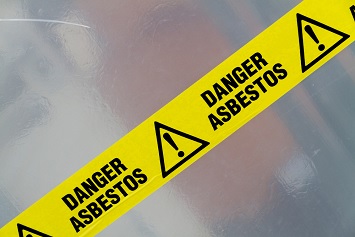Partisan politics are blamed for the House’s failure to pass a bill that would have amended the Toxic Substances Control Act (TSCA) to prohibit the manufacturing, processing, and distribution of asbestos or any mixture or article containing asbestos, according to The Hill.
 The Alan Reinstein Ban Asbestos Now Act (H.R. 1603) was originally dubbed a bipartisan bill and was scheduled for suspension by the House on September 29, 2020. “The purpose of considering bills under suspension is to dispose of non-controversial measures expeditiously,” according to the Congressional Institute.
The Alan Reinstein Ban Asbestos Now Act (H.R. 1603) was originally dubbed a bipartisan bill and was scheduled for suspension by the House on September 29, 2020. “The purpose of considering bills under suspension is to dispose of non-controversial measures expeditiously,” according to the Congressional Institute.
Instead, the bill was abruptly pulled from the floor without any action on October 1, 2020.
Democrats immediately called foul and condemned House representatives for blocking the long-awaited bill.
Representatives Frank Pallone, Jr. (D-NJ), chair of the House Energy and Commerce Committee; Paul Tonko (D-NY), chair of the House Energy and Commerce Subcommittee on Environment and Climate Change; and Suzanne Bonamici (D-OR) issued a joint statement on October 1, 2020:
“This bill had strong bipartisan support throughout the Committee process—but now House Republicans are changing their minds and abandoning the deal they used to support. Everyone should be able to support a ban on this known carcinogen, which has no place in our consumer products or processes. More than 40,000 Americans die every year from asbestos exposure, but Republicans are willing to look the other way.
“It appears Republicans care more about political optics than human lives. We see through it, as do the American people who want this toxic substance banned for good. Republicans walked away from this opportunity to ban asbestos merely over language that prevents shutting the courtroom door. This raises serious questions about the sincerity of their intentions.”
Representatives Greg Walden (R-OR), ranking member of the House Energy and Commerce Committee, and John Shimkus (R-IL), ranking member of the House Energy and Commerce Subcommittee on Energy and Climate Change, immediately issued their own response statement to “set the record straight,” blaming a last-minute language change on the bill’s failure to pass.
“It’s a real shame that House Democrats are more concerned with the opinion of the trial bar than getting meaningful results for the American people. Let us be clear: if the Majority would have stuck to the agreement we cut in committee and abandoned the language they dropped into H.R. 1603 last Friday, the bill would pass the House. Republicans have kept their word every step of the way and have not gone back on our agreement. Saying we walked away is simply untrue. All Democrats have to do is drop the language added to the bill by trial lawyers and bring the bill to the floor that every one of their members voted for when it was considered by our committee. If anyone’s intentions should be questioned, we can assure you it’s not ours.”
Last-minute language was added to the bill that said the bill would have no effect on the definition of asbestos for purposes of regulating cosmetics under the Federal Food, Drug, and Cosmetic Act (FFDCA) and for determining whether a cosmetic contains asbestos either as an ingredient or as an accessory mineral to an ingredient, such as talc.
Republicans say the added language will lead to increased litigation and that “the addition of the clause is another example of trial lawyers holding up liability protections that give businesses certainty,” according to The Hill.
Many women have brought successful lawsuits over claims that their ovarian cancer was linked to baby powder containing asbestos.
“Democratic aides say they added the so-called savings clause ‘to make sure nothing in the bill would block the minority women who are primarily bringing suits over harm from cosmetic talc,’” according to The Hill.
